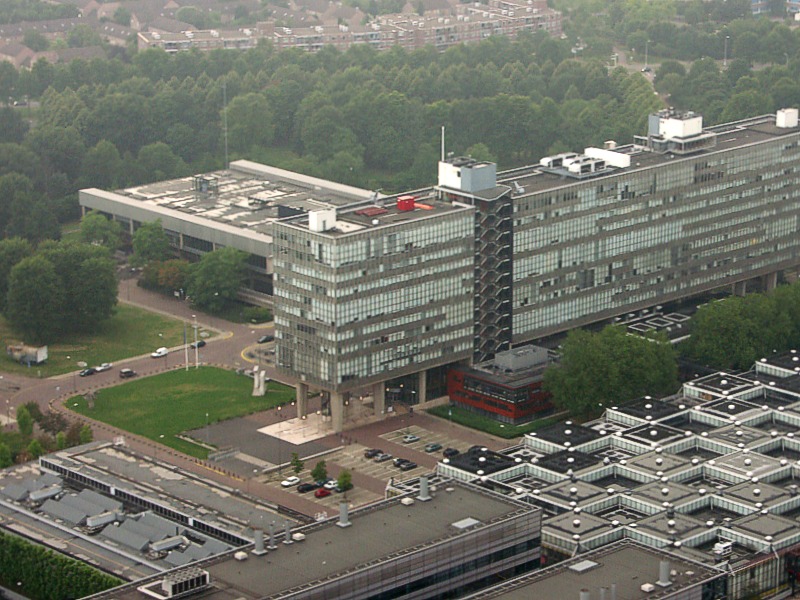The University of Twente (UT) is located in the east of the Netherlands. It offers a dynamic campus, excellent facilities and the possibility to work in- and with- famous research groups.
Professor Bram Nauta’s Integrated Circuit Design (ICD) group focuses on various aspects of analog and Radio Frequency (RF) Integrated Circuits (IC). The group's motto is “fundamental solutions for practical problems” and under this vision, it has contributed many fundamental new ideas in circuit design. The IC Design group has made high-impact inventions in analog filters, thermal noise cancelling amplifiers, ultra-low power analog to digital converters, software-defined radio, mixer-first receivers, N-path filters and sub-sampling phase locked loops. The group is a world leader and initiator of many new research directions which also find their application in industrial products. The group has a strong collaboration with the global semiconductor industry.
Are you interested in a PhD position at the ICD group?
We have access to advanced CMOS fabrication technology nodes and a well-equipped laboratory for evaluation of test-chips. We offer a very collaborative atmosphere and you will benefit from our broad knowledge and experience. A team of well-known professors in the field (professors Bram Nauta, Eric Klumperink, Anne-Johan Annema, Ronan van der Zee and Mark Oude Alink) will supervise you in this position.
Since we will invest a lot of our time in your education, development and career, we have to be very selective in our admission process for PhD students.
YOUR PROFILE
You are highly motivated and an enthusiastic researcher;
You have a MSc degree with excellent grades in Electrical Engineering, with a specialization in Analog or RF design;
You are an independent and original thinker with a creative mindset;
You are a fast thinker with excellent analytical and communication skills;
You have good team spirit and like to work in an internationally oriented environment;
You are fluent in English.
OUR OFFER
This is a general and open call for PhD applications. We normally have open PhD positions available through the year, however we do not list every open position separately. Accepted candidates can start their PhD project anytime during the academic year.
As a PhD student at the UT, you will be appointed on a fulltime position for four years, with a qualifier in the first year, within a very stimulating scientific environment;
The university offers a dynamic ecosystem with enthusiastic colleagues;
Salary and conditions are in accordance with the collective labour agreement for Dutch universities (CAO- NU); You will receive a salary ranging from €2.395,- gross per month at the start to €3.061,- in the fourth year;
Excellent benefits including a holiday allowance of 8% of the gross annual salary, a year-end bonus of 8.3% and a solid pension scheme;
A training program in which you and your supervisor will make up a plan for additional suitable education and supervision;
We encourage a high degree of responsibility and independence, while collaborating with close colleagues, researchers and other university staff.
INFORMATION AND APPLICATION
Please note: you are required to apply via the "apply now" button below, ánd to fill in an additional questionnaire before via this link: https://forms.gle/ms3PXHnbzQ136mqj8 before we can process your application.
Include in your application:
a motivation letter, emphasizing your specific interest and motivation to apply for a PhD position in our group
a detailed CV (resume) and a publication list;
contact details of at least 2 referees
an academic transcript of B.Sc. and M.Sc. education, including grades
a TOEFL or IELTS score to verify sufficient mastering of the English language
an assessment may be part of the application procedure.
For more information about this open vacancy, please contact our secretary Mrs. Gerdien Lammers g.lammers@utwente.nl.
ABOUT THE ORGANIZATION
The faculty of Electrical Engineering, Mathematics and Computer Science (EEMCS) uses mathematics, electronics and computer technology to contribute to the development of Information and Communication Technology (ICT). With ICT present in almost every device and product we use nowadays, we embrace our role as contributors to a broad range of societal activities and as pioneers of tomorrow's digital society. As part of a people-first tech university that aims to shape society, individuals and connections, our faculty works together intensively with industrial partners and researchers in the Netherlands and abroad, and conducts extensive research for external commissioning parties and funders. Our research has a high profile both in the Netherlands and internationally. It has been accommodated in three multidisciplinary UT research institutes: Mesa+ Institute, TechMed Centre and Digital Society Institute.

